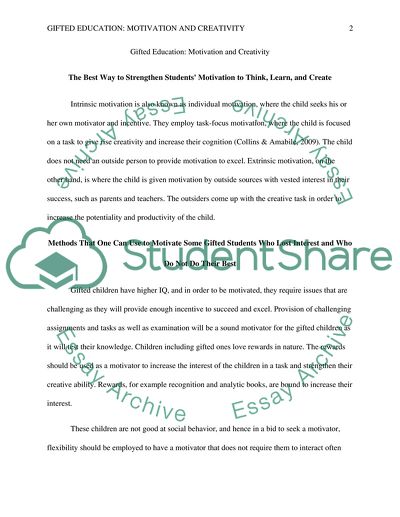Gifted Education: Motivation and Creativity Essay. Retrieved from https://studentshare.org/miscellaneous/1681575-gifted-education-motivation-and-creativity
Gifted Education: Motivation and Creativity Essay. https://studentshare.org/miscellaneous/1681575-gifted-education-motivation-and-creativity.


